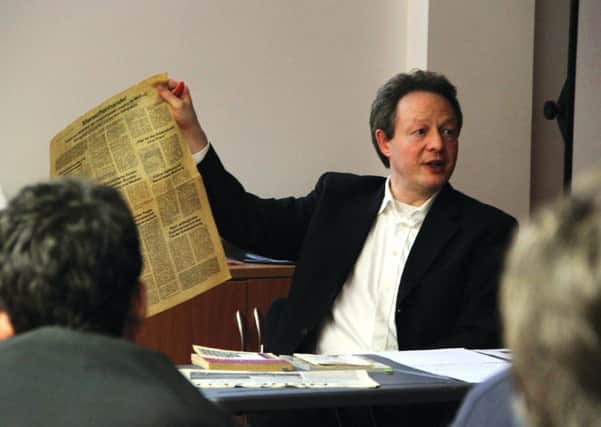‘We were able to overthrow a dictatorship’ says Hurst visiting speaker


As part of the series of “Talks”, which began at the start of the academic year, pupils, teachers and parents were keen to listen and engage with the celebrated musician from Oschatz, Saxony.
Andreas guided his audience through a number of evocative slides; explaining first the social rhythms of living under communist powers as a boy. Unable to travel until his musical prowess permitted special foreign visits, Andreas described those times as a continuous contradiction.
Advertisement
Hide AdAdvertisement
Hide Ad“Just the thought of the wall would bring on headaches” explained Andreas “… and my gran once told me that even the skies were bluer in the West.” Needless to say, when the pianist’s opportunity came to perform across the border, the real comparisons were just as vivid.
“The cars looked different, everything looked different: I was stunned,” Andreas described a visit to Switzerland as a young man. Around that time, escape was a possibility. However, the importance of his family prevailed and he remained in the East; at the time no one could have known that the wall would fall just a few years later.
Following mass protests across Germany, that momentous event occurred in November 1989. Emphasising the importance of democratic process and the importance of voting in today’s world, Andreas said, “We were able to overthrow a dictatorship. Even I felt that I had personally made a difference”.
The end of the GDR marked many things, including the closure of invasive surveillance work by the Ministry of State Security, or Stasi, which had blighted the lives of millions.
Advertisement
Hide AdAdvertisement
Hide AdAs portrayed in the 2006 film, The Life of Others, creative artists were perhaps one of the more persecuted groups. It was when Andreas read his 300 page Stasi file, part of which he brought to the talk, that he found boundless accounts of deception and betrayal by some of his closest friends. It was an extremely difficult time.
Asked by a member of the audience, “Why would they do it?” Andreas cited three possibilities; jealousy, desire to be part of the controlling forces or the threat of being detained if you were not. Andreas, invited by Head of German, Dr Hülsmann-Diamond, brought the evening to a close by explaining that he, along with most German people today, are very happy about the unification.
Report and picture contributed by Richard Cox, News Reporter and Web Editorial Assistant, Hurstpierpoint College.